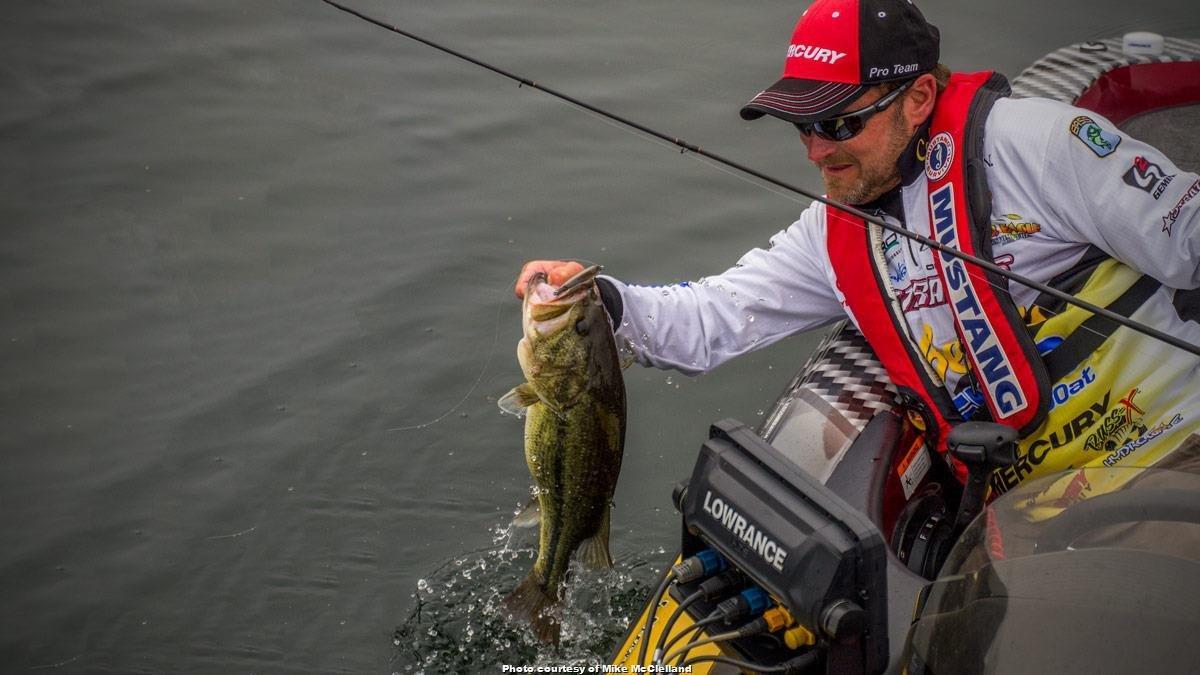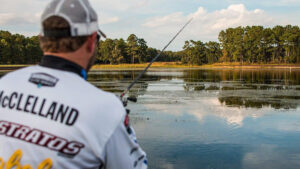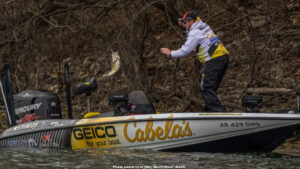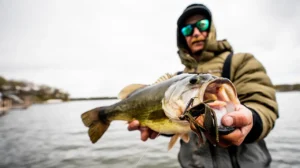It’s the waning hours of your first tournament of the year. You’ve been on the water a lot in the past couple of weeks, and you feel like you had a good idea of what the fish were doing. Still, you’re battling the voices. You’ve got four fish in the livewell and you know you need another keeper to make a check, a kicker fish to finish near the top. You’ve been grinding all day long on the areas you practiced in and the demons in your head start to get louder.
“Remember that spot down the lake where you caught 20 pounds a few years ago? Just one of those fish would do it for us right now. You gotta go fish it.”
So you abandon your primary areas and the current pattern you found in practice and defaulted to “fishing history.” You get to your favorite point from a few years ago and wouldn’t you know it – you don’t catch a fish. A couple short hours later and you’re forced to head to the weigh-in with less weight than what you need. Leaving you with a sour taste in your mouth, only to wonder what might have been…
If you can relate, you’re not alone in battling those voices screaming at you to fish history. Mike McClelland, Elite Series pro and 7-time Bassmaster winner has a lot of experience and fishing history from which to draw. But, he has seen time and time again not only how fishing history can help you, but also, more often than not, how it can hurt you.
When you hear fishing history, it’s referring to the idea of abandoning the pattern or area you’ve been focusing your efforts on to go fish a specific spot on a body of water, often with a specific bait, where you have caught fish at in the past.
McClelland explains there are 3 sides to the fishing history conundrum:
- Understand why history can hurt
- Learn how to block it out
- Know when it can help
History can hurt
In McClelland’s opinion, fishing history can be detrimental to a bass fishermen. He believes this is true whether you are a weekend angler or a tournament professional.
“If you don’t fish a lake on an extremely regular basis, I feel fishing history will hurt you more often than it will help. For me, history with or on a body of water is really kind of a last ditch effort,” McClelland said.
Even though McClelland may have 20 years of experience on a body of water, he doesn’t want to let these past experiences guide his fishing. Especially when practicing for an event.
“My outlook there is when you practice, you look at new water,” McClelland said. “You try to mix in at least half to three-quarters of your practice fishing new water, exploring new areas and new patterns. Then if that doesn’t work, you always have your history to fall back on.”
McClelland is a big believer in fishing the conditions you are given on each day. It doesn’t really matter how you caught fish on this lake last year, what matters is what is going on under the water on that day.
He understands that in all aquatic systems there is a lot subject to change. Whether it be from local anglers dropping new brush piles, decay of old structures, different water levels, or different weather conditions, it doesn’t make too much of a difference. The key is conditions have changed, and the fish will have changed with them.
“Theres no doubt about it – I’ve had a lot of decent finishes on lakes I have a lot of experience on, like Table Rock, by fishing history.” McClelland said. “But if you look at where my wins have come, there is no doubt in my mind that if you want to win a tournament on a body of water you have history on, it is going to take a completely open mind and a new game plan.
“Even for my win on Table Rock last year, history played a small role, but I was really fishing a pattern during that tournament as much as anything.”
Develop a good search plan
In order to avoid fishing his history, McClelland has developed an approach to practice which helps him focus on fishing the conditions. He is not looking to catch loads of giant bass on each day when practicing for an event – instead he is looking for clues of where to focus his efforts at for the tournament.
“When I get to a lake, old or new, I am going to first try to find the area of the lake that has the most activity in it and what kind of a pattern and what choice of baits is going to make me the most successful during that specific period of time.” McClelland said.
“One thing I try to make myself do as we approach late winter/pre-spawn stage is try and use a lot of moving baits to cover a lot of water when the conditions dictate it.”
McClelland’s search lures of choice
During the late winter McClelland relies heavily on his SPRO stick bait series. Utilizing the McRip 85 when the water is still really cold and then switching to his McStick 110 and 115 as the water warms and the fish begin to move shallower. McClelland goes with pale or dull colors for these baits early in the year when the water is cold. Simply for the fact that when that water is cold and muddy, most of the forage base is going to be very pale in color.
Another lure McClelland will be using as a search bait this of year is the new SPRO RkCrawler 55. This bait offers him the ability to cover a broad depth range. He can fish the Rock Crawler anywhere from 3-5 feet, all the way to around 12 feet depending on the size of Sunline he throws the bait on. Here he leans towards crawfish colors like browns, reds, and oranges, as he believes that is what the bait is mimicking.
McClelland loves throwing these search baits through the late winter/early pre-spawn stage but understands that bass aren’t always going to be willing to chase something.
This is when he’ll opt for a bottom bait like a BassX 3/8 – 5/8 ounce roundball or football head jig paired with a soft plastic that doesn’t have a lot of built in action. Something like a Zoom Super Chunk or Super Chunk Jr.
These specific baits and techniques are especially productive in the Midwestern impoundments, but McClelland has proven these techniques fruitful across the country throughout the early prespawn period.
Effectively covering water with proven techniques helps McClelland dial in a pattern that is working in the given conditions, which helps mute the voices in the back of his head telling him to go fish in spots where he has been successful in the past.
Utilizing history
Just because McClelland does not form his practice or game plan around his fishing history, doesn’t mean that there are not times when fishing history can be the correct route to take.
“If you’re just out for an enjoyable weekend with your family or friends, or you have limited or no time to practice for a local derby, that is the time to be fishing from past experiences,” McClelland said. “You still have to fish the conditions for that day or that time of year, but if you aren’t fishing areas and patterns you already know, you’re eating up a lot of your limited time.”
McClelland admits that he will occasionally use his history in his professional tournaments, but only if it fits into the pattern he has found during that week of practice.
“When I start establishing a pattern or most productive area on a fishery, that is when I might pull in some of my history on that lake. Thats when I’ll say, ‘Okay I’ve been ‘em on a ledge and I did catch them on a ledge like this a few years ago.’ Maybe I’ll go run and check that spot on the last day of practice.”
This is completely different from abandoning your primary pattern to chase your history. Instead, McClelland is adding pieces to his puzzle where they fit. If an area or spot he has fished in the past fits into the pattern he has discovered on a lake at a given time, he will add it to his milk run. Making sure the hand that guides him is the pattern he has found and the present conditions, not the fish caught off these spots in the past.
There are instances where fishing your history can result in a great day on the water, and following your gut is a big part of bass fishing. But a great day from many years ago doesn’t usually translate into a great day today on the same spot.
Paying attention to why fish are in the areas when you catch them will help you piece together patterns more quickly while also enabling you to mix your fishing history with your current preparation for more great days on the water.














